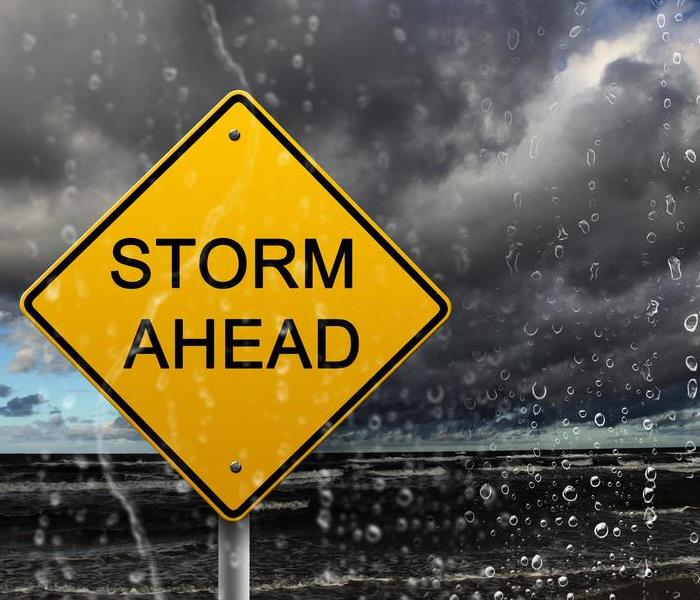Severe Weather
4/10/2017 (Permalink)
Severe Weather
Severe weather can happen anytime, anywhere. Approximately 98 percent of all declared disasters are weather-related, leading to around 500 deaths per year and nearly $15 billion in damage. Knowing your risk of severe weather, taking action, and being an example are just a few steps you can take to be better prepared to save your life and assist in saving the lives of others.
An emergency can happen anywhere and anytime and it can happen to you. In an emergency, it is vital to think clearly and react quickly. If an emergency occurs, it is essential for you to know what to do and what not to do. The time to find this out is before an emergency happens.
Once an emergency occurs, do not panic. Emergency information will be broadcast on the Emergency Alert System, on local radio and television stations, the NOAA weather radio and the Cable Interrupt System. But in an emergency, it is up to you to determine what action is appropriate.
THUNDERSTORMS:
Thunderstorms produce many dangerous and severe forms of weather. Lightning, destructive winds, heavy rain and hail can all be products of thunderstorms.
Severe Thunderstorm Watch: the conditions are favorable for severe weather and you should continue normal activity, but monitor weather conditions closely.
Severe Thunderstorm Warning: you should seek shelter immediately and monitor conditions on the radio or television.
What to Do:
- If you are outside, get into a building, car or bus.
- If you are in the woods, pick a low area under small trees.
- If you are swimming or boating, get out of the water immediately and onto land as soon as possible.
- If you are in an open area, head for low ground such as a valley or ravine, or crouch down.
- If golfing, leave the course as soon as possible and take shelter in the clubhouse.
What Not to Do:
- Do not touch metal objects such as bicycles, fences, golf clubs, and equipment such as lawnmowers.
- Do not go near trees, poles, hills, clotheslines, overhead wires, metal pipes, or water.
- If in a group, do not huddle -- but spread out.
- Do not use the telephone except in an emergency.
- Do not take a shower or bath.
TORNADOES:
Tornadoes are violent storms with spiraling high-speed winds. Tornadoes are usually accompanied by hail, severe thunderstorms and wind. The noise of a tornado has been described as a roaring sound -- like a train far away.
A Tornado Watch: there is a possibility of one or more tornadoes in your area. Continue normal activity but monitor weather conditions closely.
A Tornado Warning: a tornado has been sighted and may be approaching -- seek shelter immediately.
When a tornado threatens, immediate action can save your life!
- Stay away from windows, doors and outside walls. Always protect your head!
- In homes and small buildings, go to the basement or to an interior part of the lowest level -- take shelter in closets, bathrooms or interior halls away from windows. Get under something sturdy or lie in the bathtub and cover yourself with a blanket.
- In schools, nursing homes, hospitals, factories, shopping centers and malls, go to pre-designated shelter areas. Interior hallways on the lowest levels are best. Stay away from exterior glass doors.
- In high-rise buildings, go to interior, small rooms or hallways on the lowest floor possible with no windows. If you can see outside, you are not safe.
- In vehicles or mobile homes, vacate and go to a substantial structure. If there is no shelter nearby, lie flat in the nearest ditch, ravine or culvert with your hands shielding your head and neck.
Contact SERVPRO of Cayce/ West Columbia and Lexington for more readiness tips and tools, including SERVPRO’s Emergency READY Profile (ERP). Having an ERP in place for your facility can help minimize business interruption in the event of a disaster.

 24/7 Emergency Service
24/7 Emergency Service
